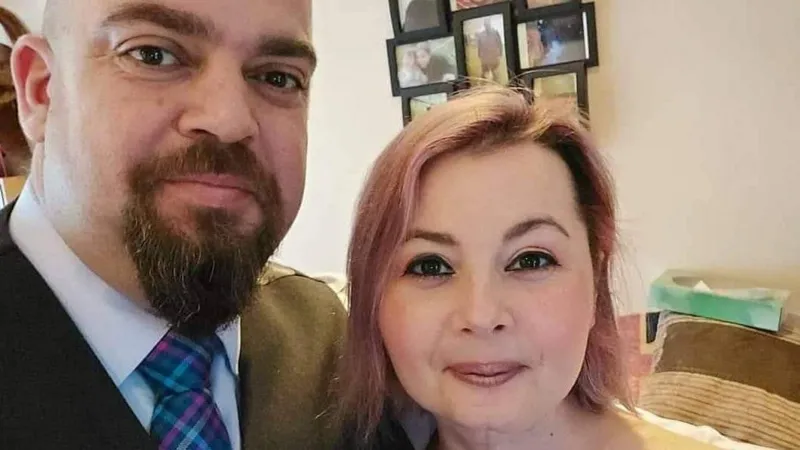Hundreds of thousands of people with advanced head and neck cancer could live longer without their cancer returning thanks to an immunotherapy drug, a clinical trial suggests.
This is the first sign of a breakthrough for patients with this difficult-to-treat cancer for 20 years, say scientists behind the research.
Laura Marston, 45, from Derbyshire, says she is “amazed she’s still here” after being given “dire” chances of survival following a diagnosis of advanced tongue cancer six years ago.
She received the immunotherapy before and after surgery, which researchers say helps the body learn to attack the cancer if it returns.Cancers in the head and neck are notoriously difficult to treat and there’s been little change in the way patients are treated in two decades.
More than half those diagnosed with advanced head and neck cancers die within five years.
Laura was given only a 30% chance of surviving that long after her diagnosis in 2019, after having an ulcer on her tongue which wouldn’t go away.
The next step was major surgery to remove her tongue, as well as lymph nodes in her neck, and then she had to learn to talk and eat again.
“I was 39 and I was devastated,” she told BBC News.
As part of an international study into new ways to treat the cancer, involving experts from the Institute of Cancer Research in London, Laura was one of more than 350 patients given the immunotherapy drug pembrolizumab before and after surgery to prime the body’s defences.
Prof Kevin Harrington, who led the trial in the UK, explains: “We give the immune system the chance to have a good look at the tumour to generate anti-tumour immunity and then, after removal of the tumour, we continue to amplify that immune response by giving the drug continually for up to a year.”
A similar number of patients diagnosed with similar cancers received the usual care offered. They all had advanced head and neck cancers in one area, that had not spread to the rest of the body.
The new approach showed positive results. It doubled the length of time patients were cancer free, on average, from around 2.5 years to five years.
After three years, patients given pembrolizumab had a 10% lower risk of their cancer returning elsewhere in the body.







